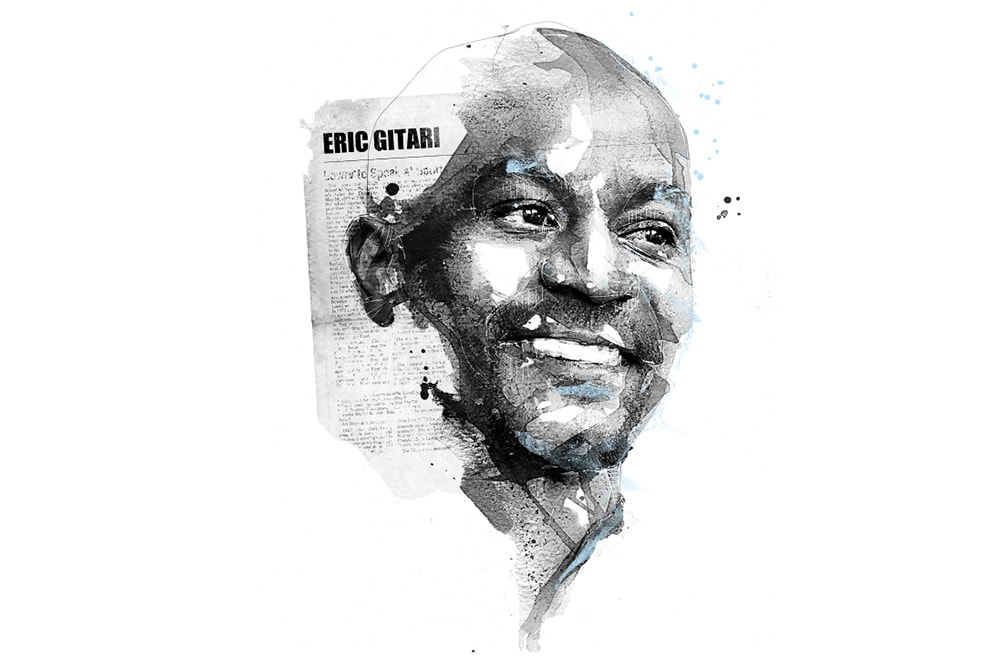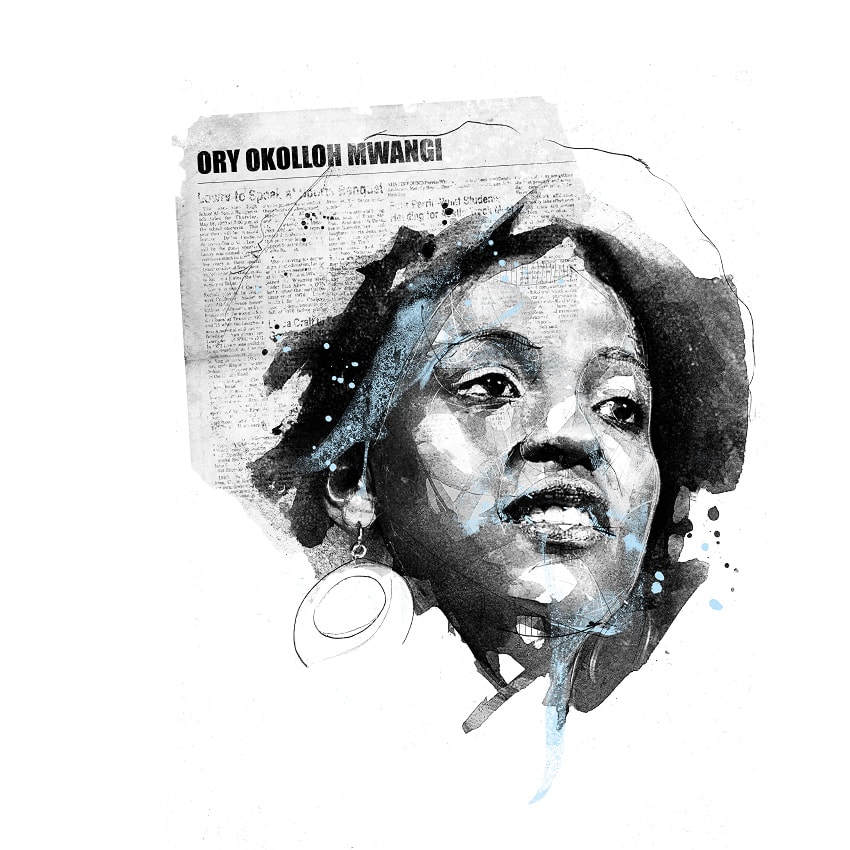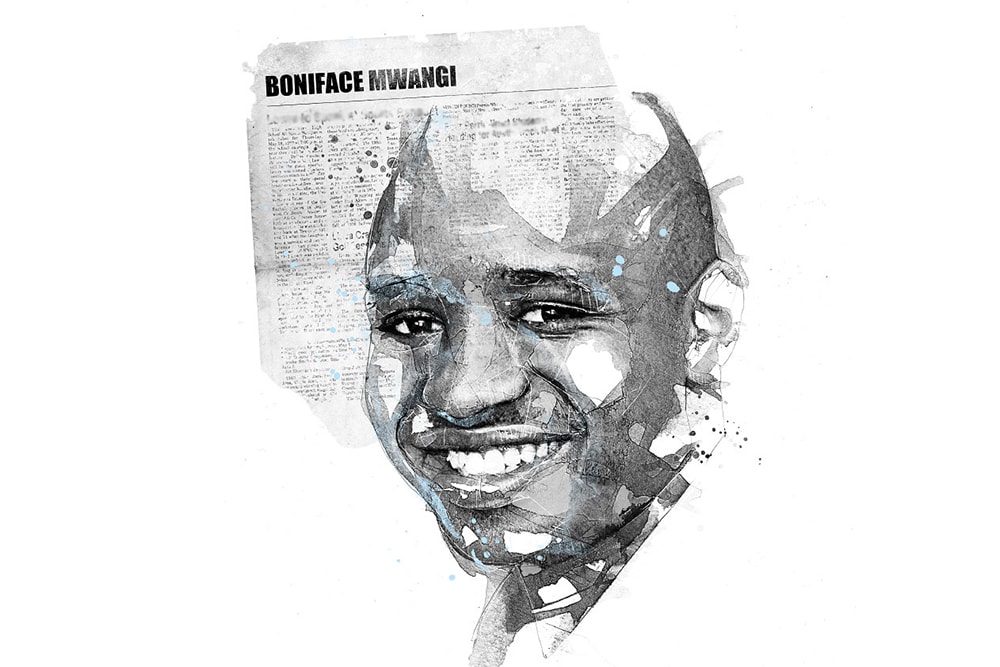What's it like to head an LGBT organisation in a country where homosexuality is illegal? To lawyer Eric Gitari, it's just a winnable challenge and a cause he is spreading across the African continent.
In an on-line discussion board hosted by The Guardian on 26 November 2015, Eric Gitari stated: We are all equal members of the human family, despite our differences, which should be celebrated and not used to exclude us.
Eric Gitari’s activism is underpinned by persistent legal challenges to ensure that Kenya and countries across the continent embrace legal and policy reforms towards equality and full inclusion of sexual and gender minorities.
Gitari’s dissertation as a doctoral fellow in Harvard Law School’s SJD programme “compares the legal, political and social challenges resulting from criminalization of same sex conduct in African legal systems and the effect of such criminalization in accessing rights – such as the right to fair trial, employment, registration of associations, housing and expression.”
In the summer of 2019, he used his Chayes International Public Service Fellowship stint to monitor and assess the human rights situations of LGBTQI+ persons in Gambia and Senegal. The experiences in both countries, while challenging, gave him hope as he experienced the “green shoots of rule of law and equality”.
In Kenya, violence and discrimination against LGBTQI+ people is rife. Yet signs of growing tolerance and the recent lifting of bans that had made organisations supporting LGBTQI+ rights illegal can be attributed to the persistent lobbying and awareness raising by activists such as Gitari. After a three-year battle, in 2015 his organisation, the National Gay and Lesbian Human Rights Commission (NGLHRC) was finally given the registration that it had fought for, enabling it to carry out its work promoting equal rights.
LGBTQI+ people in Kenya live under a constant threat of violence, persecution, demonization in the media and discrimination. A 2015 report by Human Rights Watch describes mob attacks often provoked by extremist religious leaders, and politicians’ hate speech. This homophobia is bolstered by the penal code that criminalises “carnal knowledge against the order of nature”.
One impact of this law is that organisations working on LGBTQI+ issues have been refused permission to formally register on the grounds that they promote illegal behaviour. Without registration, they are unable to carry out their work. Among these was the NGLHRC, set up in 2012 by five lawyers, including Gitari, to provide legal aid for what he describes as a “community that was criminalised, marginalised and excluded from different spheres of society.”
Its first application for registration to the Nongovernmental Organisations Coordination Board was refused. The Board said then that the proposed name of the organisation was “unacceptable” as Kenya’s penal code “penalises gay and lesbian liaisons”. The NGLHRC went back to the Board six times to contest the decision without success, finally taking the case to the Constitutional Court in October 2014.
In May that year, a landmark resolution was passed by the African Commission on Human and People’s Rights condemning violence against LGBTQI+ and demanding that member states provide an “enabling environment” for LGBTQI+ rights defenders. This precipitated a change of attitude in Kenya. Soon after, in July 2014, Transgender Education and Advocacy (TEA) was granted previously denied registration. Then, in April 2015, the NGLHRC was itself granted registration, after the High Court ruled that the board’s refusal was unconstitutional.
In a press statement, Gitari described the decision as “ground breaking” and an indication that Kenya is a “country that is keen to becoming much [more] open and democratic despite the challenges”. While the board appealed the High Court decision, the court again ruled in NGLHRC’s favour.
The NGLHRC’s success comes from a multi-pronged strategy that targets not only the legal system, but also winning over public opinion. It stages openly queer events in public spaces, encouraging previously hesitant artists and well known figures to come out as LGBTQI+, countering what Gitari describes as “the stigma and shame associated with the stereotype that was created by the media that gays are unemployed diseased sex perverts who sell themselves”. He also speaks of creating allies in the media and mainstream organisations that work for social justice including with the Kenyan Human Rights Commission for whom he co-wrote a report on the experience of LGBTQI+ people in Kenya: The Outlawed Amongst Us.
Gitari is optimistic about the future, saying that recent positive developments mean “There’s more confidence by queer persons in Kenya that they are included in this republic, [and] that the constitution actually works”.
This does not take away from the fact that Kenya remains a conservative society and legislation still discriminates against LGBTQI+ people. Gitari points out that although there are few convictions under the law banning homosexuality – Section 162 of the penal code – its purpose appears to be expose and humiliate. “We have noted that the public message that the state conveys to society through this law, is that they (sexual and gender non conformers) are ‘criminals’… [The] effects have been, and continue to be, violence, discrimination and death,” Gitari told IFEX in an email.
Such repercussions are what inspire Gitari to continue to take legal action. In 2015, the NGLHRC filed a petition with the Mombasa High Court after police forced two men to undergo anal exams, HIV tests and Hepatitis B tests over suspicion that they were engaging in homosexual activity.
NGLHRC described the forced tests to be a form of cruel and degrading treatment, but in June 2016, the court upheld that the examinations were constitutional. The NGLHRC subsequently appealed the decision, and in March 2018 Mombasa’s Court of Appeal reversed the decision stating that anal exams were unlawful and the lower court’s judgment unconstitutional.
There have also been legal defeats.
The NGLHRC has also filed a constitutional challenge against Section 162 of Kenya’s penal code, the very law that was used to justify the forced anal examinations, and Section 165 – which berates “indecent practices between males”. In May 2019 Kenya’s High Court upheld the laws which criminalised homosexuality, saying the petitioner (Gitari) had not convinced the court that people’s basic rights were violated and the laws were not targeting LGBTQI+ persons.
As Gitari says: “Social change doesn’t come in a day, but what is encouraging is that it is very incrementally going there, slowly, but surely.”
Illustration by Florian Nicolle


